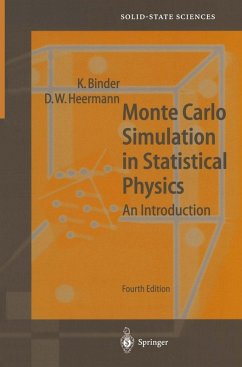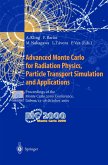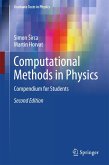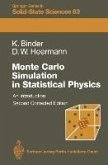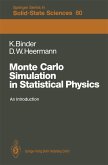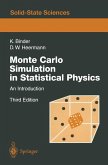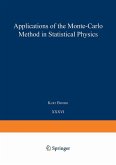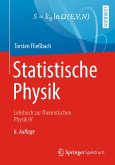Monte Carlo Simulation in Statistical Physics deals with the computer simulation of many-body systems in condensed-matter physics and related fields of physics, chemistry and beyond, to traffic flows, stock market fluctuations, etc.). Using random numbers generated by a computer, probability distributions are calculated, allowing the estimation of the thermodynamic properties of various systems. This book describes the theoretical background to several variants of these Monte Carlo methods and gives a systematic presentation from which newcomers can learn to perform such simulations and to analyze their results. This fourth edition has been updated and a new chapter on Monte Carlo simulation of quantum-mechanical problems has been added. To help students in their work a special web server has been installed to host programs and discussion groups (http://wwwcp.tphys.uni-heidelberg.de). Prof. Binder was the winner of the Berni J. Alder CECAM Award for Computational Physics 2001.
Dieser Download kann aus rechtlichen Gründen nur mit Rechnungsadresse in A, B, BG, CY, CZ, D, DK, EW, E, FIN, F, GR, HR, H, IRL, I, LT, L, LR, M, NL, PL, P, R, S, SLO, SK ausgeliefert werden.

